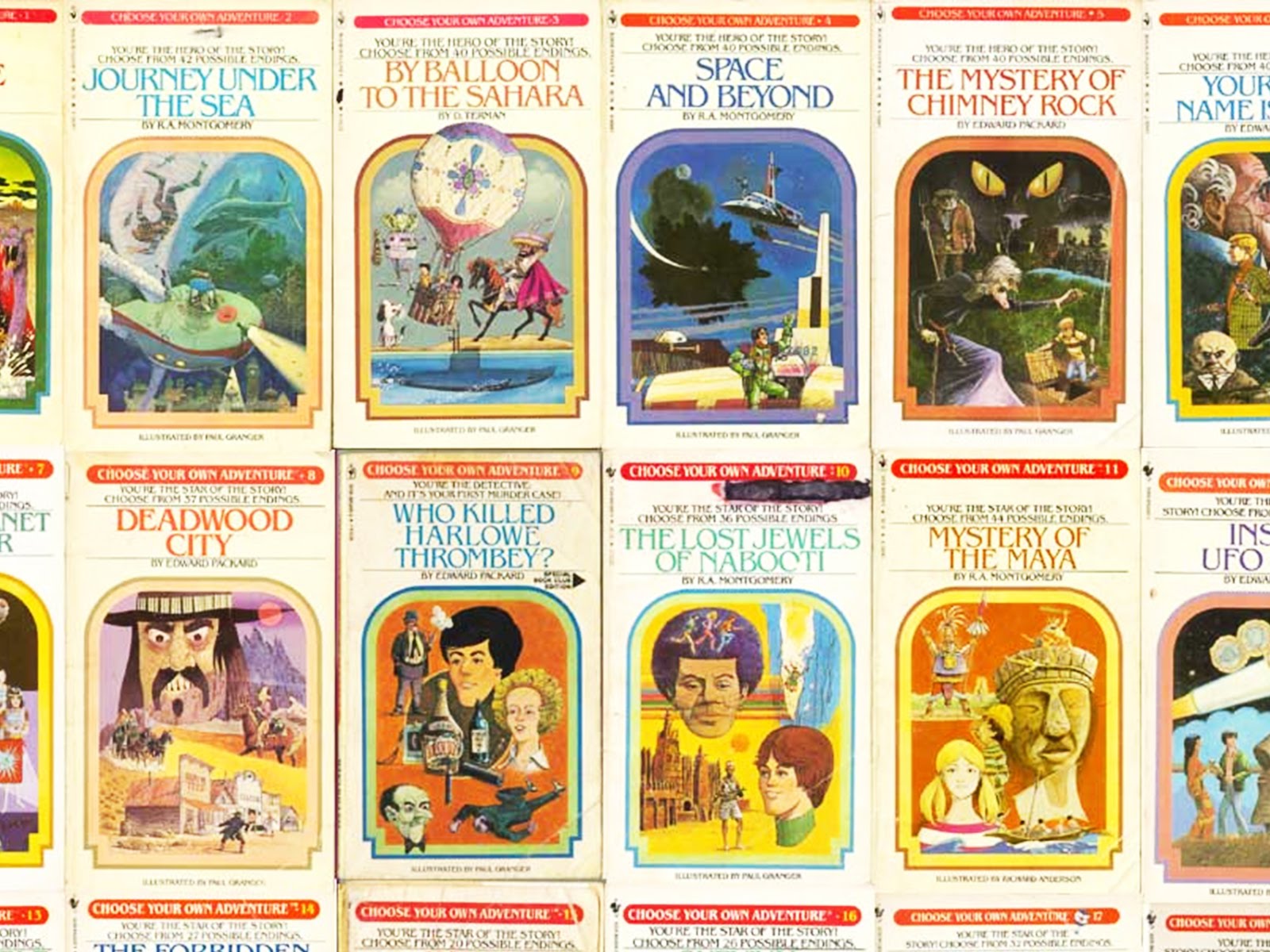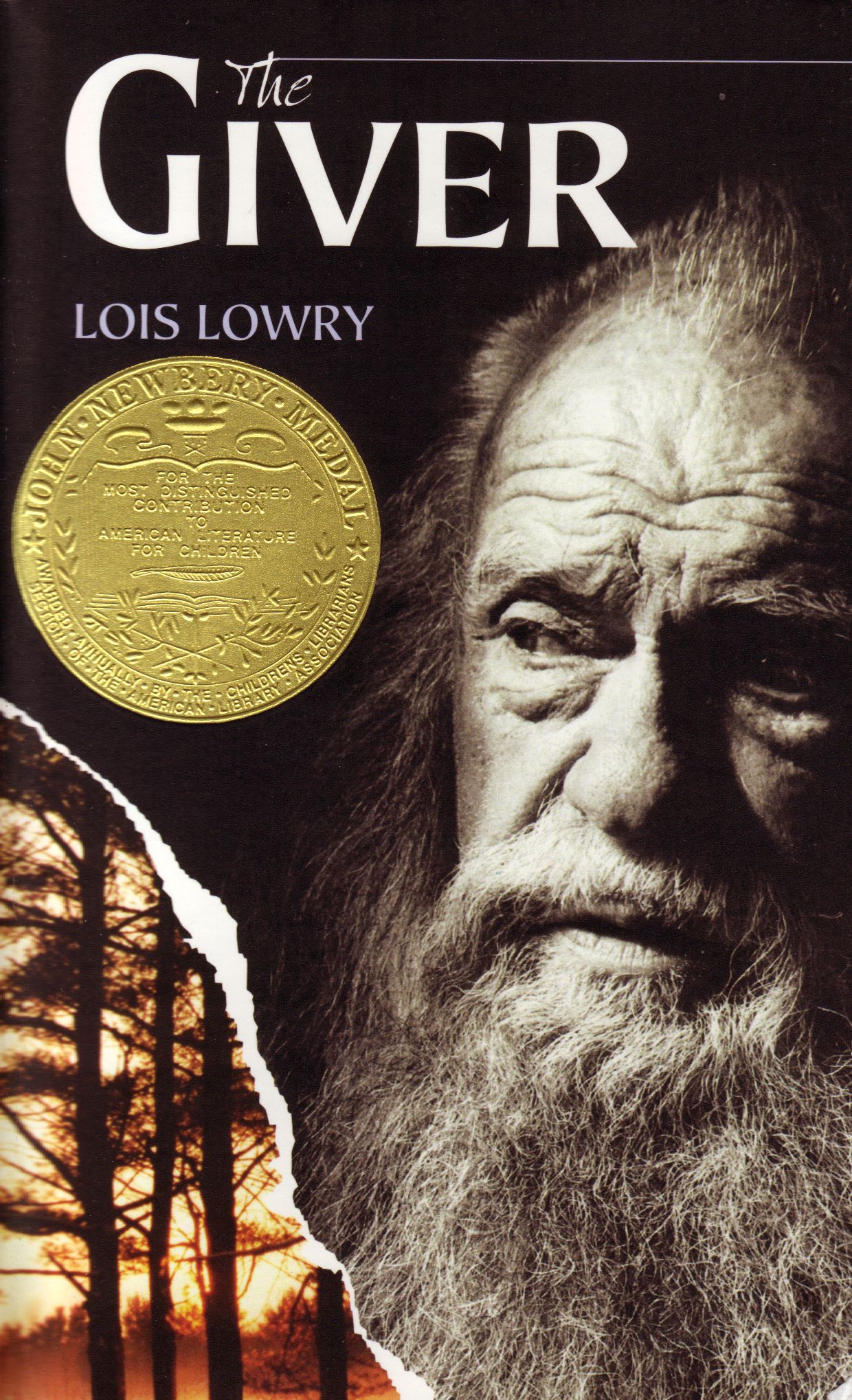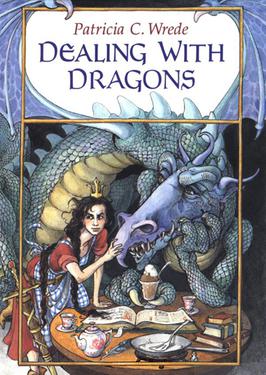
Mrs. Piggle Wiggle's Magic by Betty MacDonald: This is just one in the Mrs. Piggle Wiggle series. But it's my favorite. Mrs. Piggle Wiggle is the lovable neighbor who helps the neighborhood children learn, though her means are unconventional. The book is charming and funny, and will leave you wanting to buy a pet pig and name it Lester. Some parents might prefer the other books in the series that don't use magic potions to solve problems, but I found the inclusion of magic to be, well, magical.

Wayside School is Falling Down by Louis Sachar: Wayside school was built with one classroom on top of another, thirty classrooms high. (The builder said he was sorry.) This book is bizarre and zany and strange and clever and delightful and inventive and hilarious. It's part fable, part comedy, and part ___. (Fill in the blank with whatever genre you want, whatever you say will probably be true.) I have yet to meet a kid who doesn't like this book and it's lovable cast.

Holes by Louis Sachar: Another Louis Sachar book. Why don't we just agree that everything by Louis Sachar is worth reading? Yes? Okay. This book is humorous, creative, and endearing (and award winning!) and well worth the read.

Choose Your Own Adventure books by Various Authors: This is a good series for reluctant readers. The format of the book turns the control of the story over to the reader, which can make readers feel more involved and thus more prone to keep reading. If your kid digs these books then I've got good news for you: there are 185 CYA books, with several more themed CYA books out there. (Star Wars, Indiana Jones, Disney, etc.)

The Indian in the Cupboard by Lynne Reid Banks: An ordinary boy and an extraordinary cupboard make for a really fun read. This is a good one for advanced readers. The story is fun and imaginative but the vocabulary is a little more substantial than most fourth graders are accustomed to, so it challenges them in a good way.

The Fantasy Staples: Harry Potter, Percy Jackson, Artemis Fowl, Narnia: I know people who start their kids on these classics earlier, and depending on your child that could very well be the right choice. I was just thinking of some of the scarier moments in the later Potter books and some other tense moments across these series' and didn't want to recommend them across the board to too young an age group for fear of traumatizing sensitive young readers. These are all in my "own" category, and I will be reading them to my children. But I'm pretty sure by age 10 they should be able to handle reading any of these books on their own. My opinion on this is not set in stone though. I could potentially see kids reading these earlier, maybe even much earlier. Any thoughts on this, or experiences with kids reading these too young?

The Emerald Tablet: The Forgotten Worlds Book 1 by PJ Hoover: Telekinesis! Teleportation! Atlantis! This is a newer fantasy novel for young readers. (Published in 2008.) But the premise had me sold before I ever started reading. Two kids learn that they are not, in fact, human, and are charged with the task of saving the world. No big deal, right? So starts an adventure definitely worth reading. This book has a very Percy Jackson-esque feel to it, so readers who liked that series will likely enjoy this one as well.

The Wednesday Wars by Gary D. Schmidt: The year is 1967. Seventh-grader Holling Hoodhood must spend every Wednesday afternoon with his teacher, Mrs. Baker. This is Holling's story, and is told with charisma, wit, and a fair amount of depth. The story deals with family dynamics, the Vietnam war, bullying, and Shakespeare, among other things. But the story is surprisingly sweet, emotionally compelling, and inspirational.

The Giver by Lois Lowry: A lot of kids read this in school these days. That's where I was first introduced to The Giver. And I am not exaggerating when I say it changed my life. The Giver marked the first time I noticed that a book changed the way I think, and thus began my first foray into literature. I know I'm not the only kid who was impacted by this novel, so I hope this book continues to be required reading in schools for many years to come.
As much as I love this book, I have to admit I never cared for this cover. Any graphic designers want to take a crack at a redesign?
As much as I love this book, I have to admit I never cared for this cover. Any graphic designers want to take a crack at a redesign?

The Outsiders by S.E. Hinton: I love a book with a good theme, but hate when I feel like I'm getting preached to. It's a hard line to walk, but it can definitely be done, as The Outsiders demonstrates. In a world seemingly split between the haves and the have-nots, Ponyboy learns, and teaches his readers, that people are more alike than everyone usually thinks. As Ponyboy says, we all look at the same sunset.
To Kill a Mockingbird by Harper Lee: That's right, kids in this age group can now start reading bonafide classics. This is a good classic to start with because the protagonist is a child, but the writing is more elaborate, without being too difficult to understand for tweens. It tells a story from their point of view, but the themes are important and touching. This could be the first of many readings for your tween.

Dealing with Dragons by Patricia C. Wrede: Sometimes in life what you need is a brownie, not a vitamin pill. Among all these classics and stories with deeper subject matter, don't forget to include the lighter stuff. This book is exciting, funny, and entertaining, and requires nothing from you but to sit back, relax, and enjoy a tasty book. Plus, it features dragons. Obviously, I'm a fan. Dragons are ace.

Number the Stars by Lois Lowry: This book is historical fiction taking place in Denmark during WWII, told from the point of view of ten-year-old Annemarie Johansen. WWII is one of the darkest and most troubling points of world history, and therefore needs to be taught, but also needs to be taught in an age-appropriate way. Number the Stars does just that. It does not sugarcoat the horror of WWII, but is also hopeful about humanity. The story is compelling and sad but also terribly moving.

Tuck Everlasting by Natalie Babbitt: This book has all the ingredients for an action adventure, but is actually more of a slow burn. It actually suits the books well to not be so reliant on adrenaline, because it moves the focus to the characters rather than the plot. It makes you really consider the big questions they ask, and while some think this book is sad, I like the way it ends. Just because it doesn't end up the way you expected doesn't mean it's bad. A good thinking book for tweens.
Happy Reading!
Coming tomorrow: Books for Teens
Coming tomorrow: Books for Teens
Previously:

This is a fantastic list! I wanted to comment on the fantasy genre. My oldest daughter is 8 1/2. She started reading Fablehaven earlier this year and began having nightmares about some of the elements. We thought she was ready for it, but she let us know that she wasn't--and we'll try again with that one later. When to introduce those books will vary from child to child (and parent to parent) because family cultures are all different and children are all different. All of that being said, I think IN GENERAL, parents are more lenient with what they let their kids read/view these days and too many children are expected to be able to appropriately deal with very adult emotions. There are SO MANY great books out there and LOTS of time for kids to read them and childhood only lasts so long--so for me, I preger to err on the side of holding off on a lot of the fantasy "staples".
ReplyDeleteP.S. I'm listening to Wednesday Wars right now! I love Gary D. Schmidt's style.
Hey Amanda! Thanks for your insights! It's so tricky to find books for your kids when they can handle the vocabulary of more advanced novels, but aren't yet emotionally ready for those advanced books. You make a valid point about how so often kids are expected to handle adult emotions before they're equipped to do so. That's exactly why I was curious as to when most parents introduce these fantasy staples to their kids. You're right though, there are so many great books out there, there's no rush to push these books on kids before they're ready, even if they are fantastic books.
DeletePS- Enjoy The Wednesday Wars!
I have a soft spot in my heart for Patricia C. Wrede to this day because of the Enchanted Forest Chronicles (Dealing with Dragons is book #1). These were my favorite books for a long time. She began my lifelong love affair with Dragons. And I totally agree with the rest of this list as well. I remember loving Mrs. Piggle Wiggle and I have vivid memories of my mother reading The Indian in the Cupboard to me and my brother.
ReplyDeleteMy two cents on the Fantasy Staples is this - if you are unsure about a series for your kids, try reading together. My first exposure to most of these books was a family event at bed time. This was a great opportunity for my parents to get a sense of our understanding and reaction. I remember learning a lot about the gospel from family discussions that arose after a bedtime reading of Narnia. Harry Potter was not around when I was in this age group, but over the last few years I have observed my parents reading all 7 books out loud to my youngest siblings (now 9 and 11) and when things got scary or when there were deeper themes involved my parents were able to take a second to step back and explain. A lot of people read out loud to their little children, but I think keeping the tradition alive with your older children can help form lasting memories and relationships. That has certainly been true in my family.
The Wednesday Wars is a recent discovery for me, but I'm totally buying it for my 11 year old brother for Christmas. (Don't tell.)
I've got a soft spot for dragons too. Clearly. :)
DeleteGood insight on reading aloud to your kids. I'll have to remember that one.
Hope your bro enjoys The Wednesday Wars! It's a good one! :)